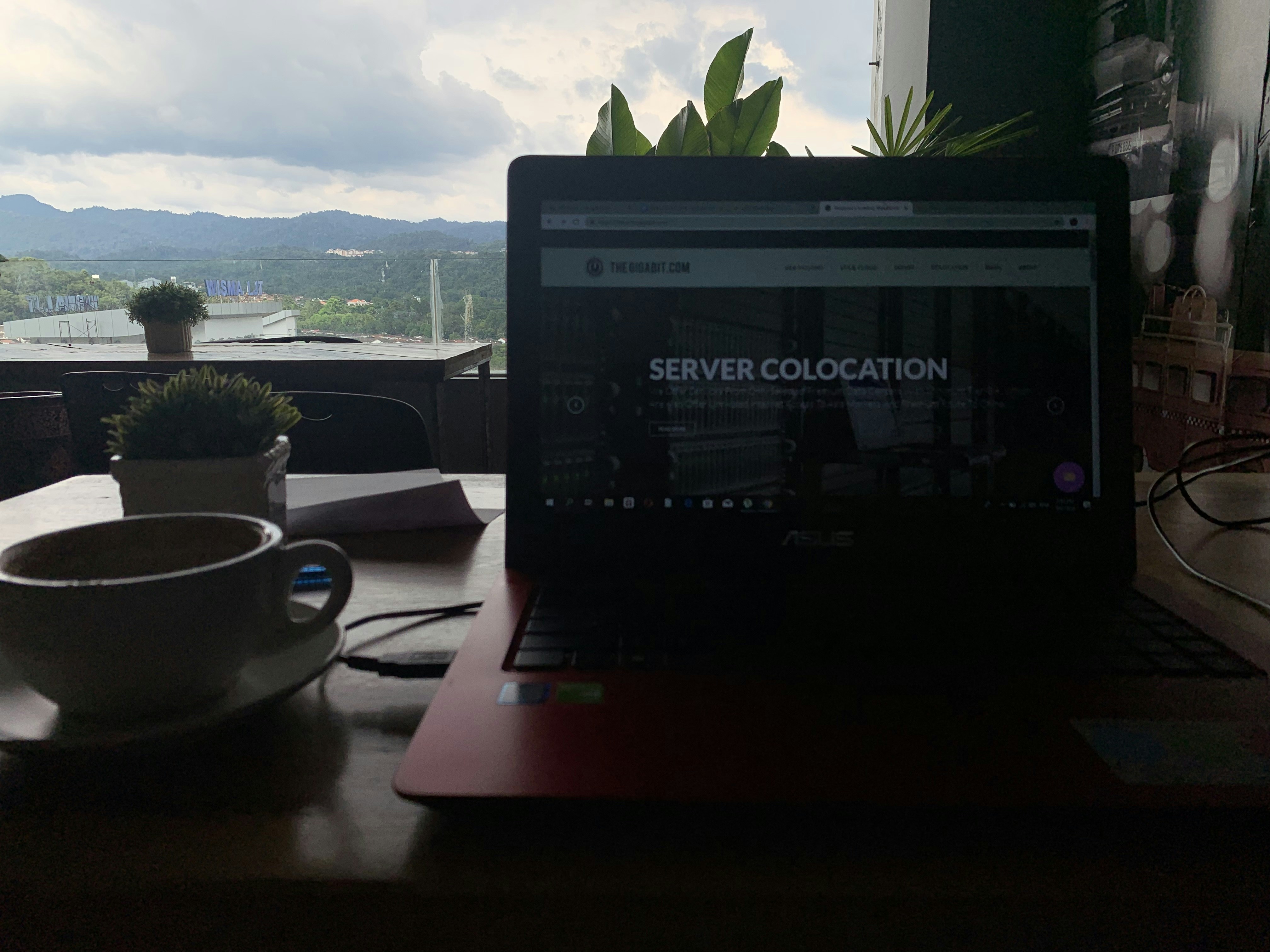What are Nameservers?
Nameservers are a pivotal component of the Domain Name System (DNS), serving as the system’s directory to translate human-readable domain names, such as www.example.com, into machine-readable IP addresses, like 192.168.1.1. This translation process is essential, as computers and servers identify each other over the internet based on IP addresses. Without nameservers, navigating the web would be a cumbersome task, requiring the memorization of numerous numerical addresses instead of user-friendly domain names.
When a user types a domain name into a web browser, the request is sent to a DNS resolver, which queries the appropriate nameservers associated with that domain. These nameservers are essentially the internet’s traffic controllers, directing users to the correct server where the website is hosted. If the nameserver is not accessible or misconfigured, users may experience delays or inability to reach the intended website, highlighting the critical role that nameservers play in web access and user experience.
Moreover, nameservers are integral to web hosting and domain management. When a domain is registered, it must be linked to the corresponding nameservers provided by the hosting service. This linkage ensures that when someone accesses the domain, the DNS system directs them to the correct server hosting the website. Changes to a website’s hosting conditions, such as migrating to a different provider, necessitate an update to the nameservers to ensure continued access. In summary, nameservers form the backbone of how domain names and IP addresses work together, facilitating smooth and efficient navigation across the internet.
Overview of Namecheap Hosting
Namecheap is a prominent web hosting provider that has established itself as a reliable option for individuals and businesses seeking robust online solutions. Founded in 2000, the company has grown significantly and offers a wide array of services, including shared hosting, virtual private servers (VPS), and dedicated hosting. Each hosting type is designed to cater to different user requirements, making Namecheap a versatile choice for both beginners and experienced webmasters.
The shared hosting plans offered by Namecheap are particularly appealing to new website owners due to their affordability and user-friendly interface. These plans typically provide ample storage, bandwidth, and essential features such as a free domain name for the first year, which can be attractive for those just starting their online journey. In contrast, VPS hosting plans are tailored for users who require more control and resource allocation, as they offer dedicated resources and greater customization options. Lastly, Namecheap’s dedicated hosting services are equipped for high-traffic websites seeking optimal performance and security.
Namecheap is noted for its customer-centric approach, consistently earning positive feedback for its customer support. Their support team is available 24/7 through live chat and ticketing systems, ensuring assistance is readily accessible whenever issues arise. The company also features a comprehensive knowledge base, allowing users to find answers to common questions independently. When it comes to pricing, Namecheap positions itself competitively in the market, providing users with various hosting plans that fit different budgets without compromising on quality.
In conclusion, Namecheap hosting offers a balance of affordability, reliability, and performance across its various hosting services, making it a commendable choice for anyone looking to establish a presence online.
How to Find Your Namecheap Nameservers
Locating your Namecheap nameservers is a straightforward process that can be accomplished in a few simple steps. Begin by logging into your Namecheap account. Navigate to the official Namecheap website and click on the “Login” button located at the top of the page. Enter your username and password to access your account dashboard.
Once you are logged in, you will be directed to your dashboard, where you can manage your various services and domains. Look for the “Domain List” option on the left-hand side menu. By selecting this option, you will be presented with a comprehensive list of all the domains registered under your Namecheap account.
Identify the specific domain for which you need to find the nameservers. Click on the “Manage” button adjacent to the domain name. This action will take you to the management interface for that domain. Within this section, scroll down to find the “Nameservers” section. Here, you will see the nameservers currently assigned to your domain. Typically, the default Namecheap nameservers will be displayed as “DNS1.NAMECHEAP.COM” and “DNS2.NAMECHEAP.COM.”
If you have previously set up custom nameservers, they will be listed in this section as well. Should you need to update or change your nameservers, you can do so by selecting the desired option from the dropdown menu or entering new nameserver values. After making any necessary changes, do not forget to save your settings by clicking the “Save” button at the bottom of the page.
Following these steps will allow you to efficiently locate and manage your Namecheap nameservers, ensuring that your domain is properly configured to point to the correct hosting service or location.
Updating Nameservers in Namecheap
When managing a domain hosted with Namecheap, updating nameservers is a crucial task that allows you to direct your domain to the appropriate web hosting service. The process to modify nameservers is straightforward, and understanding the steps involved can help ensure your website runs smoothly. To begin, log into your Namecheap account and navigate to the “Domain List” in your dashboard. From here, select the domain name you wish to update and click on the “Manage” button.
Once in the management area, you will notice a section labeled “Nameservers.” Here, you will have the option to choose between using Namecheap’s default nameservers or custom ones required by your hosting provider. If you opt for custom nameservers, enter them carefully in the designated fields. It is advisable to double-check the accuracy of the entered nameservers to avoid any potential disruptions in your domain’s connectivity.
After inputting the nameservers, click the “Save” button to apply your changes. It is important to note that the propagation of nameserver changes can take anywhere from a few minutes to up to 48 hours. Consequently, be patient during this transition period, as your website may experience temporary downtime or inconsistency during DNS propagation.
Nameserver updates are generally necessary when switching web hosting providers, moving a website to a different server, or utilizing specific services like content delivery networks (CDNs). If you notice the changes do not take effect after the propagation period, consider clearing your browser cache or flushing your local DNS cache. Additionally, you may want to reach out to Namecheap support for assistance, as they can provide valuable insights into any potential issues impacting your nameserver update.
Common Issues with Nameservers
While utilizing Namecheap hosting services, users may encounter a variety of common issues related to nameservers that can hinder website accessibility and performance. One prevalent issue is propagation delays, which occur after changing nameserver settings. DNS changes may take some time to propagate across the internet, usually ranging from a few hours to 48 hours. During this period, some users may see the old site, while others may see the new one. To mitigate confusion, it is advisable to inform users about potential delays when changes are made.
Another frequent problem arises from misconfigured nameservers. This can occur if a user enters incorrect nameserver settings during the domain registration or hosting setup process. A common oversight is implementing a nameserver address that does not correspond with the hosting provider. Users can prevent this by carefully double-checking all nameserver entries against the information provided by Namecheap or any other hosting service being used. If misconfiguration is suspected, revisiting the settings through the Namecheap dashboard can help rectify the problem.
DNS-related issues are also notable, often stemming from errors within the DNS records themselves. Incorrect A records, CNAME records, or MX records can prevent a website from resolving properly. Users should ensure that their DNS records are set up according to their hosting provider’s guidelines, as any discrepancies can lead to downtime or reduced functionality of the website. Utilizing tools such as DNS checkers can aid in identifying and troubleshooting these issues effectively.
By understanding these common challenges related to nameservers, users can take proactive steps to resolve them swiftly, ensuring a more seamless experience with Namecheap hosting services.
Understanding the Impact of Nameservers on Website Performance
Nameservers play a crucial role in the functioning of a website, particularly in determining its speed and reliability. When a user attempts to access a website, their browser initiates a process known as DNS (Domain Name System) resolution. This process involves querying the nameservers associated with the domain to obtain the correct IP address. The speed at which this resolution occurs can significantly influence the overall loading time of the website.
Well-configured nameservers can significantly enhance DNS resolution speed, thereby improving the user experience. If the nameservers are optimized, they can quickly respond to requests, allowing users to access the desired website with minimal delay. Conversely, poorly configured or unreliable nameservers may lead to increased resolution times. This situation ultimately results in slower website performance, which can frustrate users and lead to higher bounce rates.
Furthermore, reliable nameservers contribute to a website’s uptime and stability. A website may experience outages if the nameservers fail to respond or are compromised. This downtime negatively impacts user experience, leading to potential loss of traffic and weakening of the brand’s reputation. To mitigate these issues, it is essential to choose reputable hosting providers, such as Namecheap, which understand the complexities of DNS management and offer well-maintained and reliable nameservers.
Overall, the configuration and management of nameservers are integral to ensuring optimal website performance. When these technical components function effectively, they play a vital role in enhancing digital performance, which is essential for maintaining a seamless and positive user experience. An awareness of these factors empowers website owners to make informed decisions regarding their hosting solutions.
Importance of Choosing the Right Nameservers
Choosing the correct nameservers is crucial in establishing an efficient online presence. Nameservers function as the backbone of internet navigation, translating user-friendly domain names into machine-readable IP addresses. The right selection can significantly influence your website’s performance, security, and overall management. Therefore, it is essential to understand the nuances associated with different types of nameservers.
Private nameservers are typically recommended for those seeking enhanced control and security over their domain names. By utilizing private nameservers, website owners can minimize dependency on public nameservers, which may be susceptible to outages or security breaches. These private settings provide greater reliability and the ability to customize configurations tailored to specific needs. Moreover, employing private nameservers can enhance loading speed and performance, as they often allow for better optimization.
Conversely, public nameservers, while simpler and often free to use, may not offer the same level of performance or security. They tend to be shared by multiple users, making it more challenging to guarantee optimal uptime and response times. Additionally, reliance on public options may expose websites to risks, such as DNS hijacking or DDoS attacks. Users should weigh the potential risks and benefits of both types of nameservers, considering factors such as traffic volume, the significance of security, and the level of technical expertise they possess.
Ultimately, the importance of choosing the right nameservers cannot be overstated. The decision directly affects how efficiently a website operates, its availability to users, and the protection of sensitive data. Therefore, website owners are encouraged to carefully evaluate their options, ensuring that the nameservers they select align with their specific operational and security needs.
Integrating Third-Party Nameservers with Namecheap
Integrating third-party nameservers with Namecheap hosting is a straightforward process that allows users to enhance their website’s performance and security. Popular options such as Cloudflare and Google DNS provide advanced features that can improve loading times and offer added protection against cyber threats. Below is a step-by-step guide on how to implement this integration effectively.
To begin, log in to your Namecheap account. Once in the dashboard, navigate to the ‘Domain List’ section and select the domain you wish to update. Click on the ‘Manage’ button next to the domain name to access the domain settings. Here, you will find several tabs, including ‘Nameservers.’
In the ‘Nameservers’ tab, you will see a dropdown menu. By default, it is set to ‘Namecheap BasicDNS.’ To integrate a third-party service, change this setting to ‘Custom DNS.’ This will allow you to enter the nameservers provided by your chosen third-party provider.
Next, you need the specific nameserver addresses from your third-party provider. For instance, if you opt for Cloudflare, you will receive two nameserver addresses, typically ending in ‘.cloudflare.com.’ Enter these addresses into the provided fields in your Namecheap account. Make sure to check for any typographical errors, as precise entry is crucial for functionality.
After inputting the nameservers, save your changes. It may take some time for these changes to propagate across the internet, generally ranging from a few minutes to 48 hours. During this period, your website’s traffic will begin routing through the chosen third-party nameservers.
The benefits of using third-party nameservers include enhanced speed, as these providers often have distributed networks that reduce latency. Moreover, they can offer robust caching solutions and DDoS protection, ensuring that your website remains operational during high traffic or attack attempts.
Conclusion: Mastering Namecheap Nameservers
Understanding Namecheap hosting nameservers is crucial for anyone involved in managing a website. Nameservers play an integral role in how domain names are translated into IP addresses, ensuring that users can access your online content without delay or error. Throughout this guide, we have explored the various components and functions of nameservers, particularly in the context of Namecheap hosting. This knowledge is particularly beneficial for those who want to optimize their web hosting experience and ensure uninterrupted service.
One of the key takeaways from our discussion is the significance of properly configuring nameservers. An incorrect setup can lead to downtime or misdirected traffic, which in turn can negatively impact your website’s performance and user experience. Therefore, becoming proficient in the management of nameservers allows for more effective oversight of your hosting environment. Additionally, a good grasp of this aspect not only facilitates easier troubleshooting but also empowers you to make informed decisions when it comes to domain management and hosting packages.
Moreover, as you’ve learned, the utility of Namecheap nameservers extends well beyond simple hosting. They serve as a foundational element for DNS functionality and have implications for search engine optimization, website speed, and overall reliability. Hence, understanding these mechanisms is paramount for both seasoned webmasters and beginners alike.
We encourage readers to apply the insights gained from this guide to enhance their hosting management practices. By mastering Namecheap nameservers, you will not only optimize your website’s performance but also cultivate a more resilient online presence. Embracing these practices will ultimately lead to better outcomes for your users and your brand.





